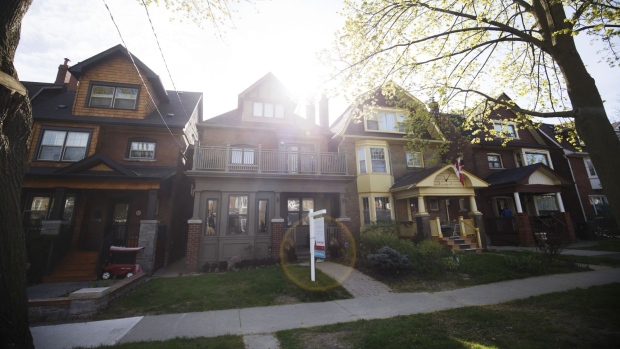Apr 14, 2020
Pattie Lovett-Reid: 8 considerations for worried homeowners

Mounting job losses and concern that the real estate market will come to a full stop has many fearing property values will drop – and along with it their net worth.
It stands to reason demand for homes will go down as people are unemployed and confidence declines. And those who in the past may have bought secondary properties for rental purposes are hesitant to do so as tenants struggle to make rent.
The housing sector likely won’t enjoy the typical spring bounce of past years.
So what does this mean for you? Here are eight considerations for concerned homeowners.
1. Don't panic. Like any asset, the only time you look at a current valuation is if you want to sell it.
2. If you have a job and are considered an essential worker, ask your employer for verification. Lenders are more likely to support your situation and discuss refinancing options if they believe a steady stream of income is expected.
3. Fixed or variable? If your mortgage is up for renewal, there are two considerations to make. One: If you are comfortable waiting things out, it’s unlikely the Bank of Canada will be in position to increase rates anytime soon, so a variable rate may be right for you. Two: If your employment is iffy and your risk tolerance is low, keep in mind even higher fixed-mortgage rates are still incredibly low by any metric. You might want to consider consolidating all your debt into a fixed mortgage and lock it down. This may work in your favour if your goal is a lower monthly payment for all your debt for a sustained period of time.
4. Shop around for rates. Now is not the time to overpay for your mortgage. If you have the risk tolerance to lock in for a shorter period, it might make sense and will be cheaper. In the interest of full disclosure, I understand the common sense to this approach, but I never had the risk tolerance for it. We locked in once we were comfortable with all the terms, time horizon, and rate.
5. HELCOs (home equity line of credit) may be the option of choice for many. However, if home prices decrease so will your available line of credit. The good news if you do have one already, you can choose the option of interest-only payments for now, and try to resist the temptation to increase the principal amount.
6. Even if you don't need to now, it may be the time to refinance. In times of prolonged economic uncertainty, job losses and employment fluctuations, appraisers and lenders will always be more hesitant to tilt to the high side of a valuation. You may also want to increase your amortization to lower your payments. Yes, you will pay more in interest, but that will be a discussion for another day for many households.
7. A mortgage deferral is not an interest-free mortgage holiday. If you choose to defer, the interest accrued during the skipped periods will be added to the principal balance. This will make a difference in how much you end up paying in interest over the life of the mortgage. For some, it is the lifeline they need right now.
8. Reverse mortgages could see a rise in popularity. Reverse mortgages are loans for homeowners 55 years and older that allow them to access some of their home’s equity without making a payment or forcing them to sell. However, a reverse mortgage loan ultimately does have to be repaid either when you move out of the home or when you die. There are some extenuating circumstances when the loan may need to be paid back sooner. For example, if the home is no longer your principal residence, you fail to pay your property taxes or homeowners insurance, or do not keep the home in good repair.
Lenders are busy as homeowners explore financial options to offer themselves some breathing room during this period of uncertainty. These are stressful times, and managing your financial situation comes down to what is right for you. It’s not one size fits all, so explore your options.







